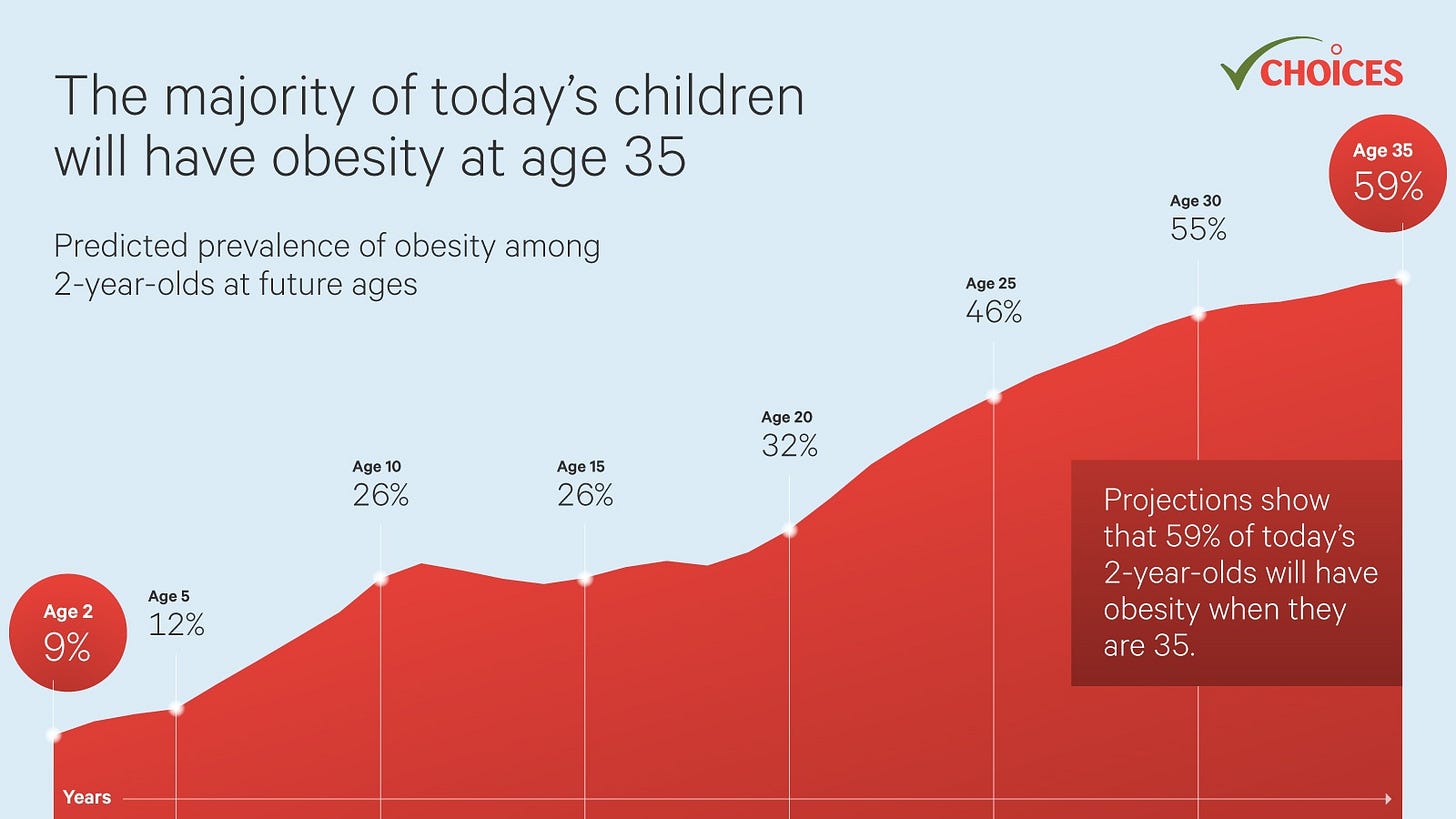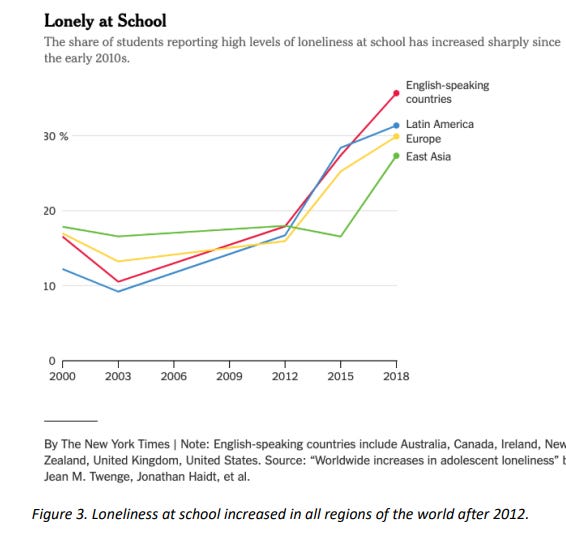Hello, good people! Welcome to the first installment of my new weekly newsletter about the stuff that parents (and educators) need to know. Let’s jump in!
What You Need to Know:
What is normal today is not normal.
It is normal to have donuts, Pop Tarts, or Cinnamon Toast Crunch for breakfast. It is normal to allow your kid to eat at the school cafeteria every day or to pack them Lunchables, Uncrustables, and other convenience foods. It is normal to think that having soda, cookies, and fast food every day is fine because it is normal. This is what normal has done:


Likewise, our tech norms have grown increasingly self-destructive in the years since the smartphone. It is now normal for teens to consume nine hours of entertainment media per day. The normal high school senior in 2015 went out less often than eighth graders did in 2009.

Connection and social interaction are essential, both for the development of life skills and for each individual’s wellbeing. But these are harder to find in the normal environment:

There are costs when the normal environment does not provide essential human needs:
It is normal to avoid what is right in front of our eyes. But teens know what is going on.
As Dr. Jonathan Haidt brilliantly explained in his May Testimony to the Senate Judiciary Committee on Technology, Privacy, and the Law:
“Teens often say that they enjoy social media while they are using it—which is something heroin users are likely to say too. The more important question is whether the teens themselves think that social media is, overall, good for their mental health. The answer is consistently “no.” Facebook’s own internal research, brought out by Frances Haugen in the Wall Street Journal, concluded that “Teens blame Instagram for increases in the rate of anxiety and depression… This reaction was unprompted and consistent across all groups.”
Still, young people aren’t likely to adapt their smartphone habits, particularly when social pressure pulls them to spend their days tethered to these devices.
Practical Implications:
This year, don’t be normal.
Don’t get your kid a smartphone just because other kids their age are starting to get one. The average kid today has a smartphone by age 10 and many get one much earlier. After the smartphone is introduced, there is a precipitous drop in essential childhood play and socializing. This is NOT normal behavior! Stick with a call and text only flip phone until high-school.
When you do get your kid a smartphone, remember, you own it! Set ground rules that are enforced with consequences. Use apps to monitor and limit how and when smartphones are used. Maintain a central family charging station.
Don’t allow screens in your kid’s bedroom (buy an alarm). Having screens in the bedroom will promote family disconnection, invite mental junk food, and discourage healthy sleep.
Don’t eat like everyone else. Humans were made to eat real foods that could be found in nature. Most of the normal foods today are industrially produced chemistry projects. Make health a priority. Focus on replacing processed convenience foods with minimally processed whole foods, which have fewer ingredients. Teach your kid to pack their own lunch.
Don’t skip family dinner or eat dinner in front of a screen. As often as possible, prioritize phone-free family dinners. According to Dr. Anne Fishel, “…family dinners are associated with less depression and anxiety, lower rates of substance and tobacco use, lower rates of early teenage pregnancy and fewer behavioral problems at school.”
But don’t be too puritanical. Enjoy a good movie or a trip out to get ice cream. These treats are wonderful as deviations from the daily norm. The point is to be intentional and in control so that you and your children can live better lives.
Remember, your model matters most.
If our goal is to help equip youth with the skills, inclinations, and attitudes necessary to thrive, then we will have to be willing to not be normal.
This is a newsletter about the stuff we need to know to thrive—the practices that have proved worthwhile, the pitfalls to avoid, and the normal things which are so very far from normal. Culture is a powerful thing. Out of this I hope to empower you with the information to clarify new norms, spur change, and build a path that helps kids live passionate, purposeful lives. To that end, please share with anyone who you think will find value.
For more in this vein, check out the chapter on Parenting Physically and Mentally Healthy Kids in my book, Setting the Bar. Thanks so much for reading! And remember, life is too short to be normal!
Shane









